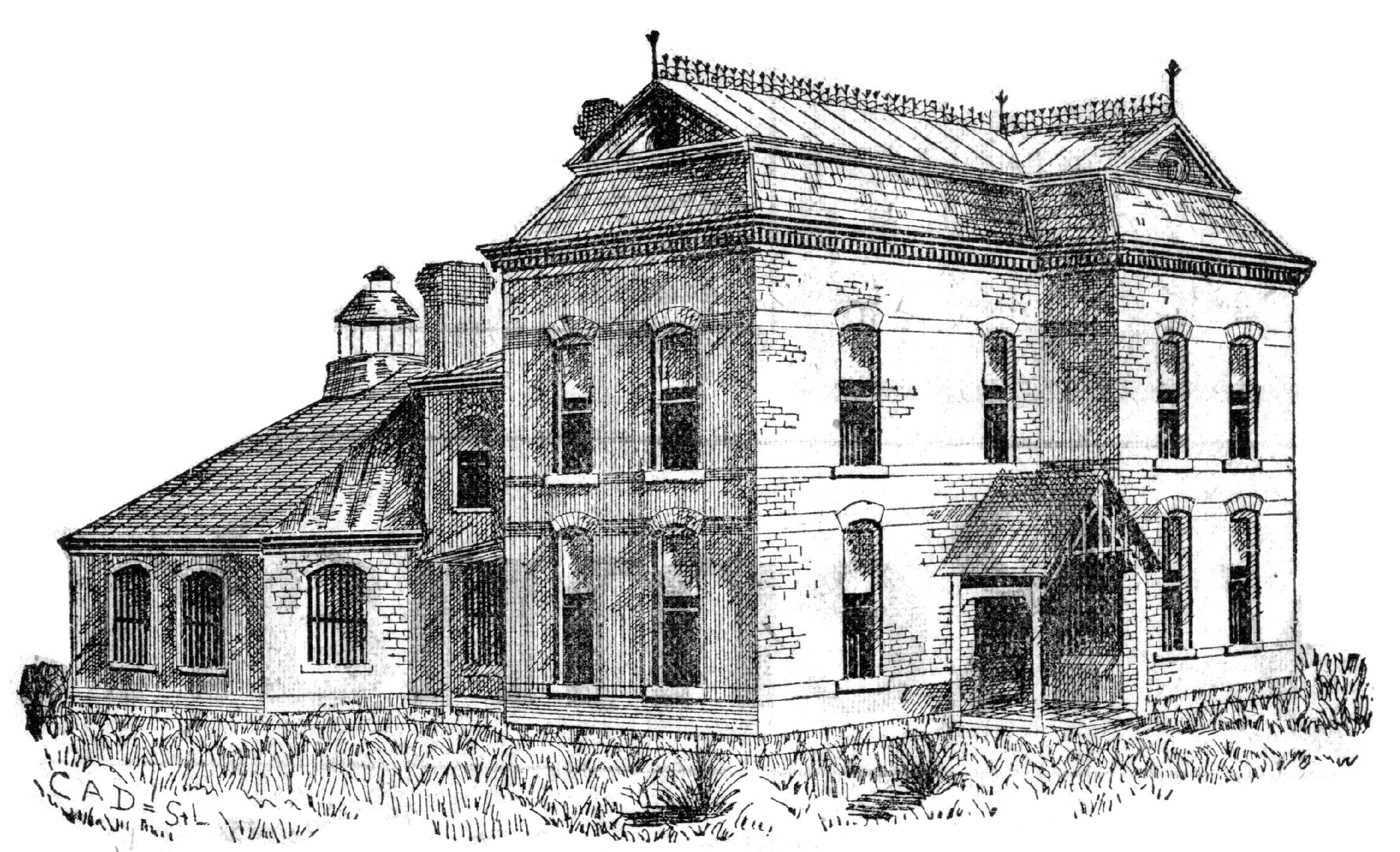Henry Clay McDougal was born in Marion County, VA, on Dec. 9, 1844. He enlisted in the 6th Infantry Volunteers a Union regiment, and served through the Civil War. At its close, he came to Missouri and located at Bancroft (Lincoln Township in Daviess County, MO) near Gilman City where his father had settled a short time before. He moved to Gallatin where he read law in the office of Judge Dodge. For a time he took his residence in the brick residence located at East Berry and North Maple streets on today’s map.

Henry Clay McDougal had many ties to Gallatin, MO, besides being one of the attorneys for the prosecution of outlaw Frank James in 1883.
McDougal was appointed city clerk in 1868-69, the first to fill that office after the reviving of city government following its lapse during the Civil War. He was mayor of Gallatin in 1870-71 and also served on the school board. He served two terms as probate judge of Daviess County while at Gallatin. McDougal was admitted in the bar in 1868 and soon became a member of Shanklin Low & McDougal (Low was M.A. Low who was later to become the guiding spirit of the Rock Island Railroad).

Henry Clay McDougal, an attorney during the 1883 trial of Frank James, lived in this 2-story brick residence located at Berry & Maple Streets in Gallatin, MO. The main entrance facing Maple Street was elevated to the main floor built above the basement.
During his 15 years of residence here, McDougal was directly involved in the exploits and prosecutions against outlaws Frank and Jesse James. He was a personal friend of Capt. John Sheets, the cashier slain during the 1869 robbery of the Daviess County Savings Association. McDougal subsequently represented Daniel Smoote, whose stolen horse implicated the James brothers in the murder and robbery, prompting the first bounty for their arrest.
Samuel P. Cox (credited with killing William “Bloody Bill” Anderson, the guerrilla leader of the James-Younger crew in 1864) was in McDougal’s office the morning McDougal received a telegram reporting the kill of Jesse James in St. Joseph. According to his account in his book “Recollections,” McDougal explains that Jesse James had vowed death to both Cox and McDougal — Cox for killing Anderson and McDougal for attaching Jesse’s prized mare to the1869 robbery and murder in Gallatin. Both men were relieved to learn of Jesse’s death. McDougal recounts Jesse James’s attempts on his life in several instances, usually while aboard a train.
In August and September, 1883, McDougal was special counsel in the background for the prosecution of Frank James in Gallatin. “Suppressed excitement was intense,” writes McDougal in his memoirs, “the evidence such as would have convicted any other man.”
In 1884 McDougal moved to Kansas City and became a partner of Gov. T.T. Crittenden. He authored the history of Kansas City in the city charter. He conducted the city’s case in the acquisition of the National Water Works plant a judicial victory which he counted his best achievement.
McDougal’s acquaintances with men who made American history in the period between the Civil War and 1900 comprise an astonishing list, including Presidents Abraham Lincoln, Andrew Johnson, U.S. Grant, James Garfield, Benjamin Harrison, and William McKinley plus hundreds of other historical name of significance including Jefferson Davis. He was a personal friend of Gallatin native and Missouri Governor A.M. Dockery.
Henry Clay McDougal died in Los Angeles in December, 1915. Among survivors at the time was a daughter, Mrs. Florence Roosevelt. McDougal was the maternal grandfather of the late Helen Roosevelt, whose estate now lists Daviess County and the operation of the 1889 Squirrel Cage Jail a beneficiary.
— written by Darryl Wilkinson for the Gallatin North Missourian

Gallatin attorney H.C. McDougal was just embarking upon his impressive career when he agreed to represent farmer Daniel Smoot in a lawsuit against Jesse James.

